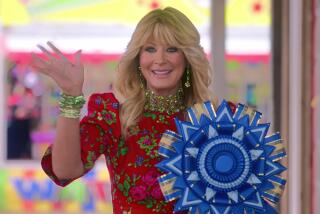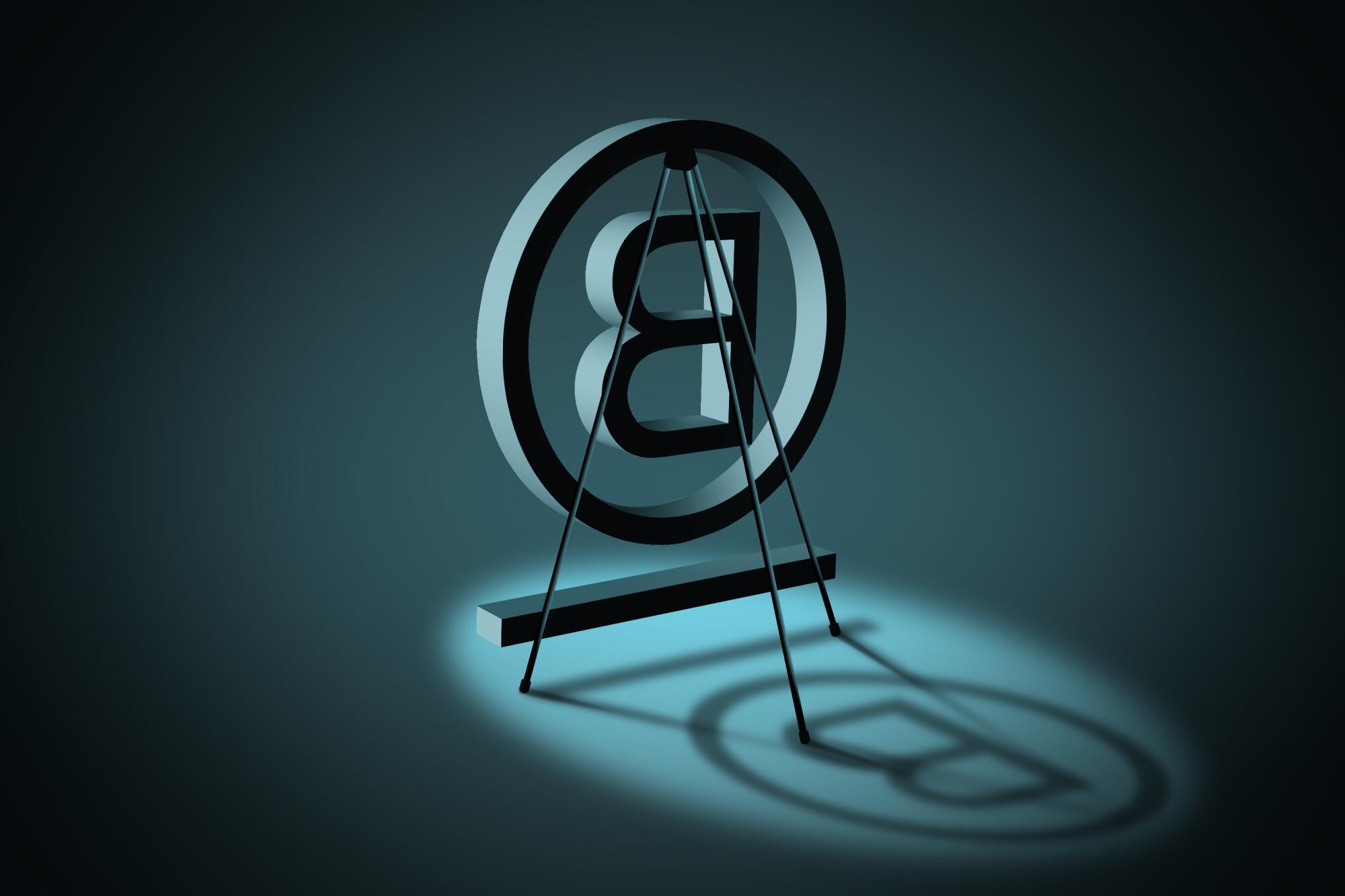
- Share via
NEW YORK — For companies that want to appear eco-friendly and ethical, B Corp certification has long been considered a coveted badge of honor.
Plastered on the shopping bags of Los Angeles grocer Erewhon as well as cartons of Ben & Jerry’s ice cream and Seventh Generation household cleaners, the seal is meant to signify membership in a selective group of businesses committed to “transforming the global economy to benefit all people, communities, and the planet.”
Certification, members say, isn’t a marketing gimmick — it’s a movement.
To become B Corps — short for “benefit corporations” — businesses pay to be regularly evaluated on standards of environmental and social responsibility set by B Lab, a nonprofit founded in 2006 by three businessmen who were friends at Stanford University. Once certified, companies pledge to B Lab that they will become “forces for good” and “consider people and the planet alongside profit.”
A slew of celebrity-backed and luxury brands have embraced the cause, including Kendall Jenner’s 818 Tequila and skincare line Aesop. Actor and humanitarian Angelina Jolie recently said she decided to partner with Chloe on her eponymous clothing line because the French fashion house was one of the first luxury brands to achieve B Corp status.
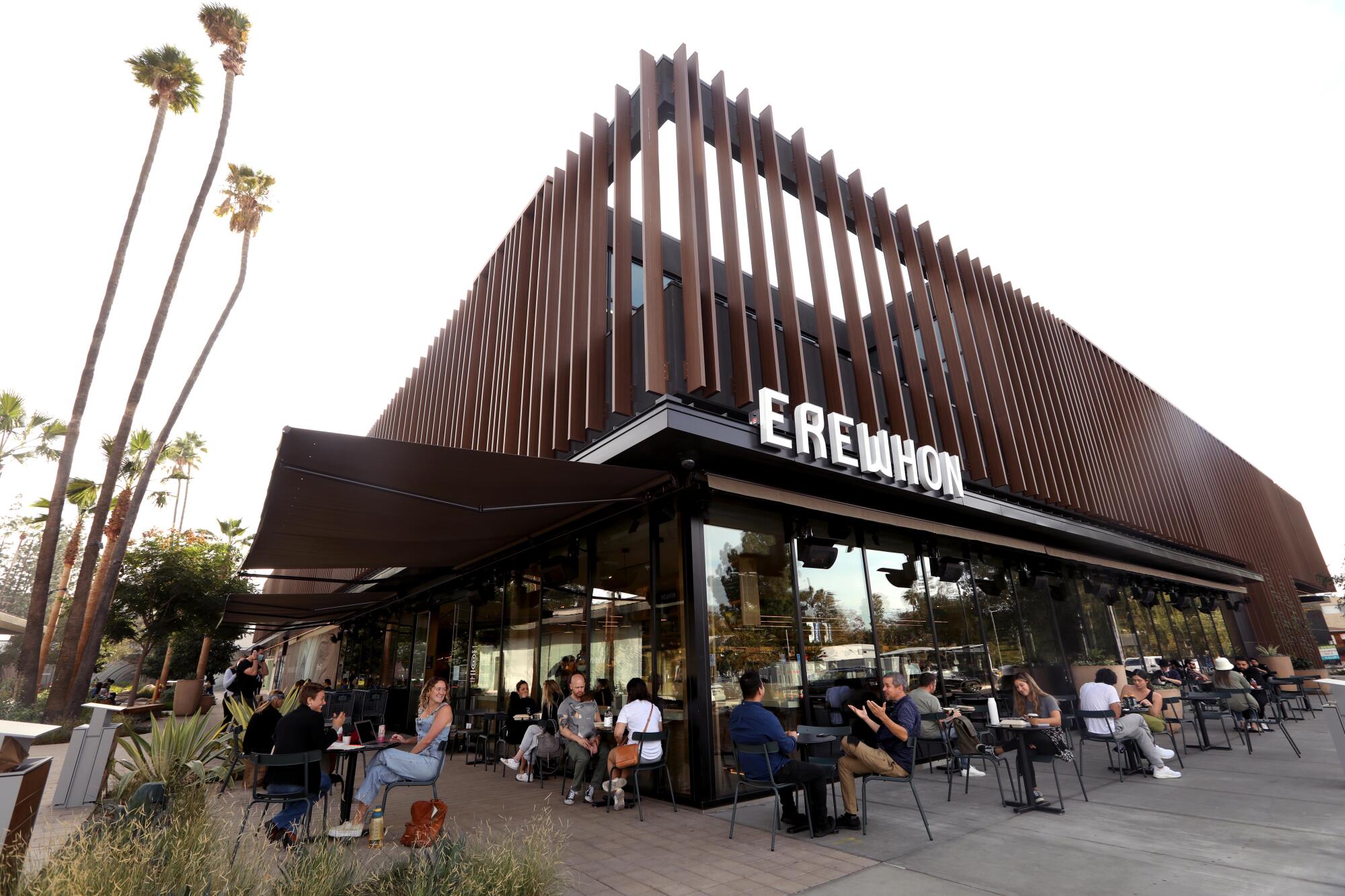
But an increasing number of B Corps are voicing concerns about the standards used to assess members, raising questions about rapid growth in the number and size of companies being certified. In the last five years, the B Corp ranks have nearly tripled to more than 7,800 businesses worldwide, spanning over 160 industries and 92 countries.
Last year, more than 30 B Corps and business groups including San Diego area-based Dr. Bronner’s Magic Soaps signed an open letter to B Lab protesting the certification of Nespresso, accusing the coffee giant of an “abysmal track record on human rights from child labor and wage theft to abuse of factory workers.” The signers also accused B Lab of “greenwashing” — making false or misleading claims of environmental benefits — by allowing multinational companies to “do the bare minimum” to become certified.
Separately, labor unions and consumer groups have called on B Lab to decertify companies following lawsuits and complaints alleging labor violations and human trafficking. Some B Corps have also been accused of engaging in multilevel marketing and predatory lending.
Now, after nearly a decade as a B Corp, Dr. Bronner’s executives are considering dropping the designation. The soapmaker known for its distinctive labels bearing its founder’s manifesto has paid tens of thousands of dollars annually to B Lab to retain its status.
The value of certification, according to B Lab, is tri-fold: It allows companies to build consumer trust, attract employees and entice investors.
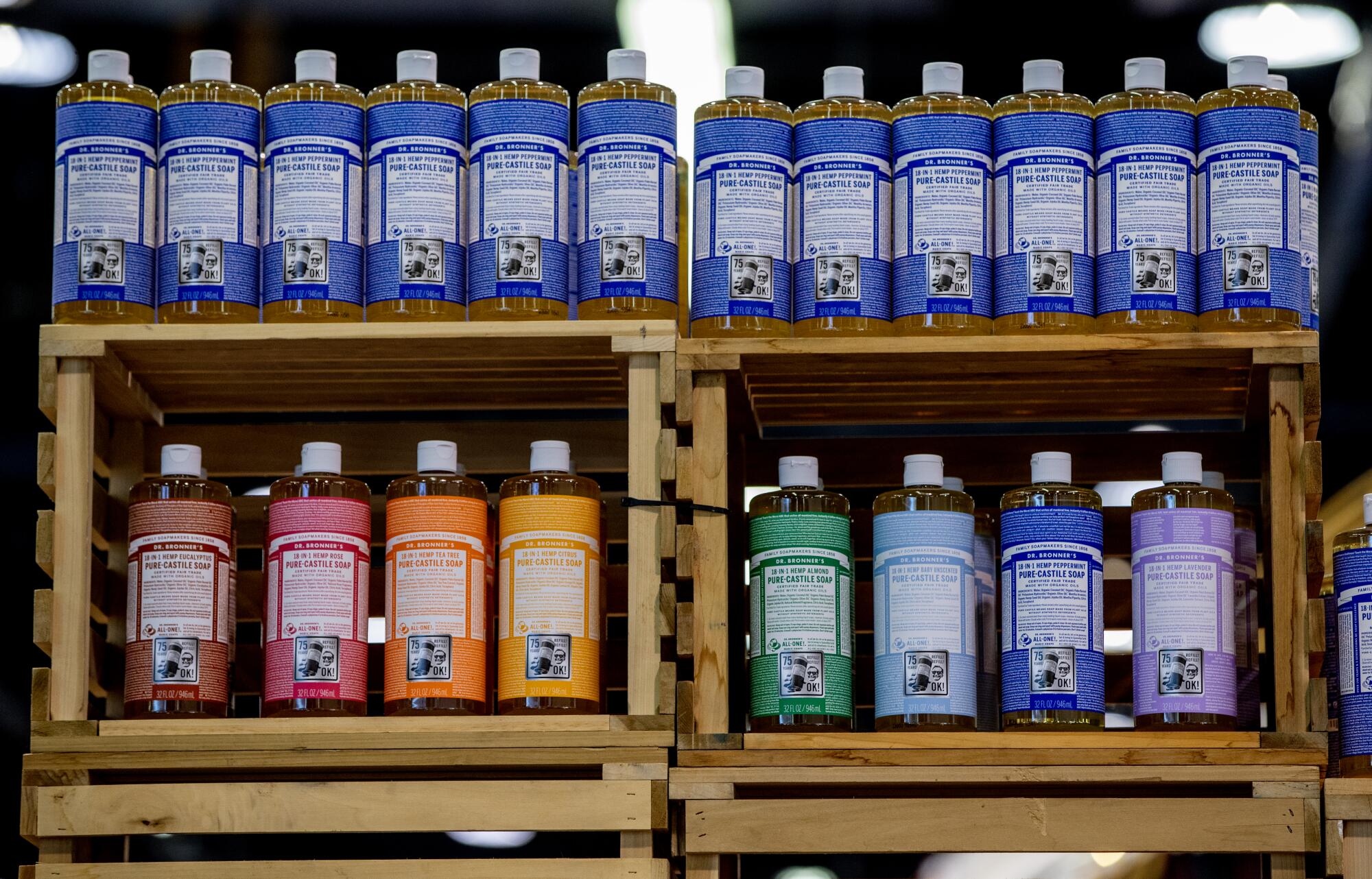
Every three years, companies fill out a detailed survey on issues including working conditions, sustainability and manufacturing. Only those that score at least 80 out of 200 points can call themselves B Corps.
Companies can rack up points for implementing certain policies, but they don’t lose points for “negative” findings such as legal judgments or regulatory violations.
B Lab has named transparency as a central tenet of its certification process. But the organization doesn’t release survey results for the vast majority of B Corps, making it unclear how most companies have scored, and does not make public what companies pay to attain and retain that status. And because B Lab is made up of a complex web of a dozen business entities spread across the globe that operate independently from one another, the full picture of the organization’s finances is uncertain.
Last year, Dr. Bronner’s achieved the highest score ever awarded — 206.7 — surpassing the 200-point maximum, but it’s unclear how it achieved that score. By comparison, Nespresso scored 84.3 points.
After receiving no reply to the Nespresso letter, Dr. Bronner’s executives sent a follow-up to B Lab earlier this year, threatening to drop its certification unless changes were implemented to ensure multinational companies receive additional scrutiny in the scoring process.
“To us and the majority of B Corps, ‘Business for good’ is more than a trendy and profitable marketing strategy,” said the letter, which the company provided to The Times. “We find ourselves at a crossroads. We seriously doubt we can remain a B Corp in the long term unless there is a serious change in how the standard is revised.”
Nespresso is one of several Nestle subsidiaries with B Corp status — including Nestle Health Science, whose suite of brands includes infant formulas. For decades, the World Health Organization has criticized Nestle and other companies for what it considers harmful and deceptive marketing practices to promote breast milk substitutes as being better than breastfeeding.
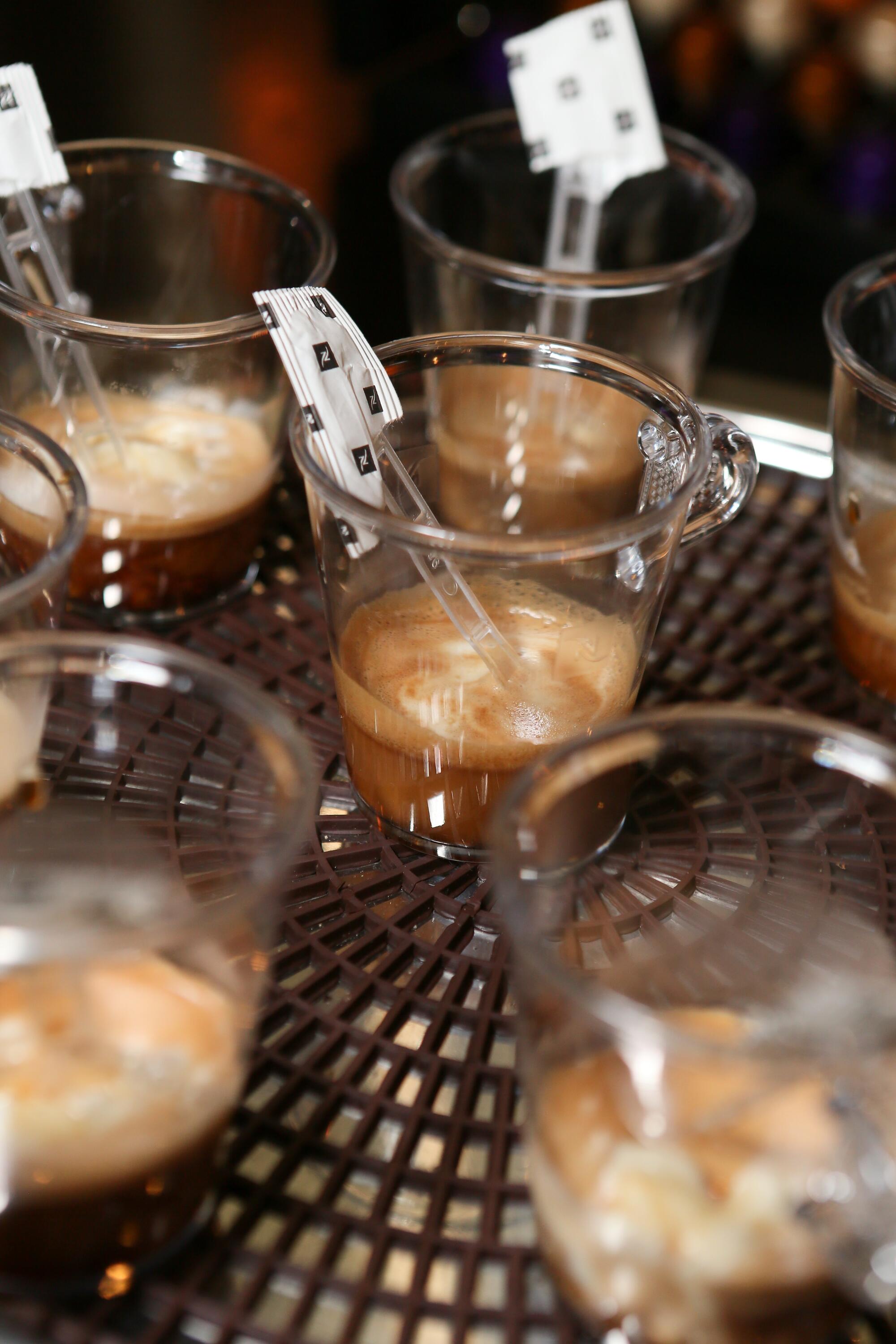
Nespresso did not respond to questions about the criticism contained in the letter. But Rob Cameron, global head of public affairs for Nestle, wrote in a statement to The Times that “Nespresso continues to enhance its operations, from advancing regenerative agriculture practices to simplifying recycling of its products, and helping to build a low-carbon, nature-positive and inclusive economy.
“We recognize there are different perspectives on companies achieving B Corp certification, but in the end B Lab holds all certified companies and brands equally accountable against very clear standards that must be achieved,” Cameron said.
The head of B Lab, Eleanor Allen, described the rapid rise in certifications as the fastest in the nonprofit’s 17-year history, with more than 3,000 companies certified since early 2022. Over 1,300 businesses were certified from Jan. 2 to Nov. 2, according to B Lab’s website. More than 300 were certified in just a two-month span from Sept. 1 through Nov. 2.
Allen noted that B Lab is in the process of overhauling its standards, which she said will “mark the most comprehensive change” since the organization was founded and will take into consideration feedback from companies like Dr. Bronner’s.
“Scrutiny, disagreement, and debate are healthy and to be expected,” Allen wrote in a statement to The Times. “In order to create an inclusive economy that benefits all people and the planet, we have to transform businesses of all sizes, across all sectors.”
‘What an employer should look like’
Last December, nearly 700 people gathered in Philadelphia for B Lab’s first in-person “Champions Retreat” since the start of the pandemic. Attendees enjoyed group yoga sessions, singalongs and plant-based catering. General admission — hotel accommodations and travel expenses not included — started at $1,800 per person.
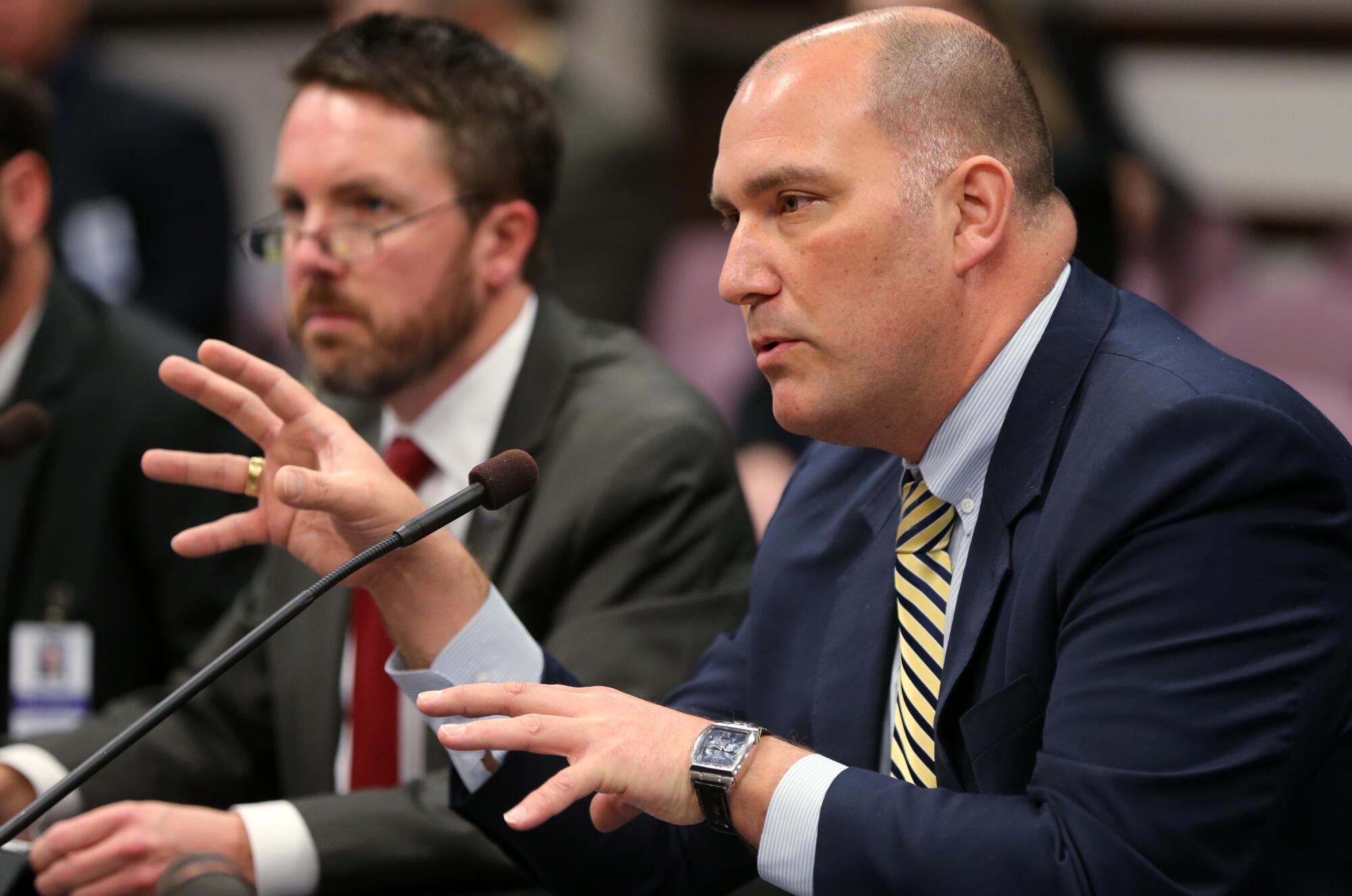
Attendees watched a short video message from then-U.S. Labor Secretary Marty Walsh, who expressed the Biden administration’s support for B Corps as the “model of what an employer should look like.”
Yet 2022 also brought a series of well-publicized allegations of labor violations and other workplace issues at some B Corps.
In January 2022, Amy’s Kitchen came under fire following an NBC investigation into workplace injuries at the prepared food company’s Santa Rosa, Calif., plant. Teamsters union organizers filed a complaint with the state Division of Occupational Safety and Health that resulted in 12 violations and fines totaling $25,070 that were later negotiated down to $6,825.
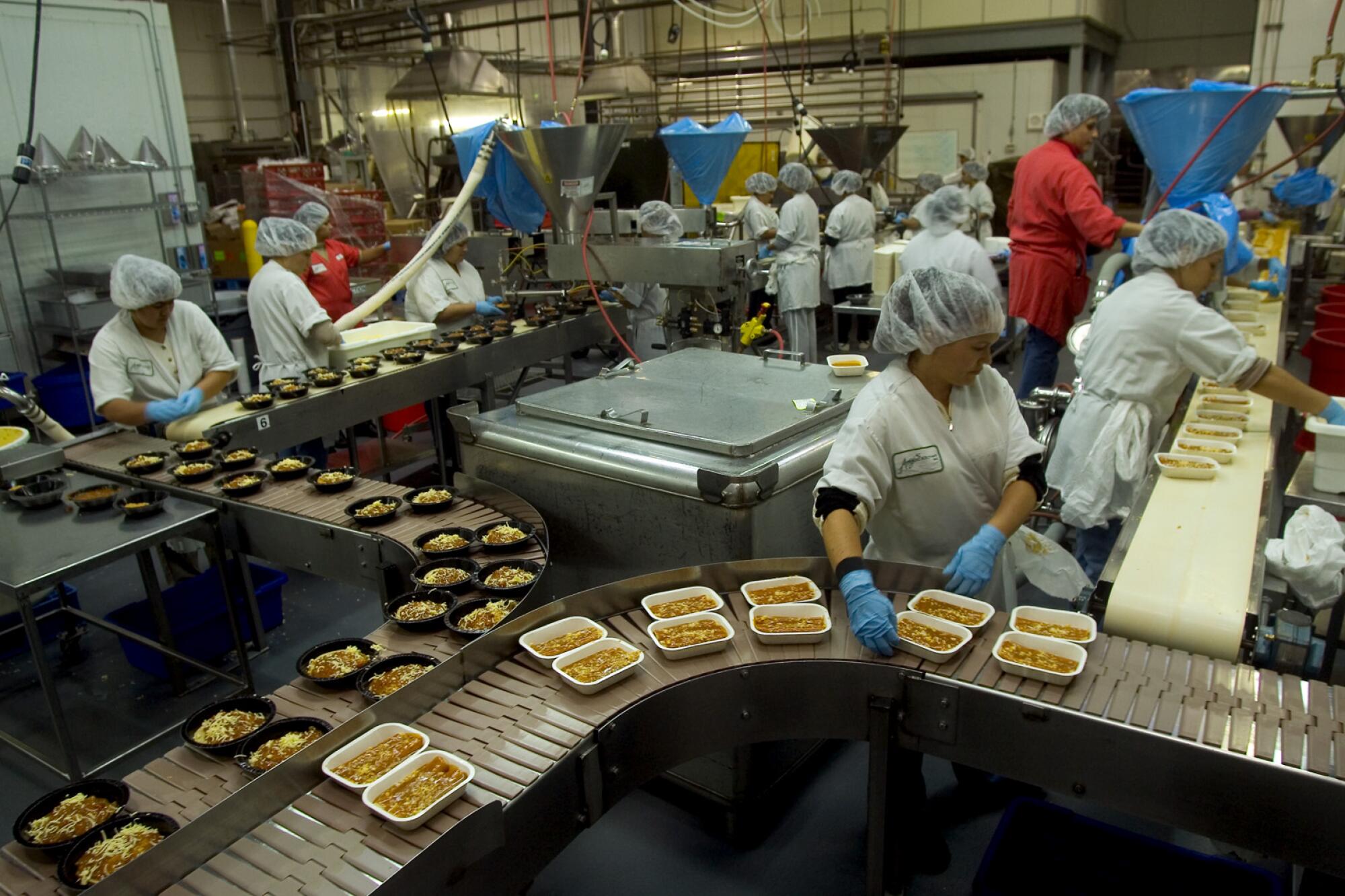
Organizers then sent a complaint to B Lab, asking that it revoke the company’s B Corp status and accusing Amy’s Kitchen — which was certified in September 2020 — of failing to disclose its past history of violations and allegations of union busting during the certification process. Over $100,000 in fines have been assessed against the company for worker safety violations dating to 2014.
“Amy’s Kitchen should not benefit from the B Corp certification unless or until all frontline workers enjoy true freedom of association, are treated with dignity and respect, and have safe working conditions,” a press release from the labor union reads. “It is impossible for B Lab to know from a checklist and a company’s own self-assessment what conditions are really like for workers.”
B Lab confirmed an ongoing investigation into Amy’s Kitchen but declined to share details, directing The Times to an 11-page disclosure statement posted to its website in which Amy’s Kitchen refuted the allegations. The company denied engaging in union busting and said it had no involvement in organizing rallies that workers held in support of Amy’s Kitchen.
In an email to The Times, Amy’s Kitchen wrote that it has “been the target of a disinformation campaign.”
“It’s a complete mischaracterization to claim our facilities are anything but among the safest in the industry,” the statement reads. “We’re proud of our record as it stacks up with the best.”
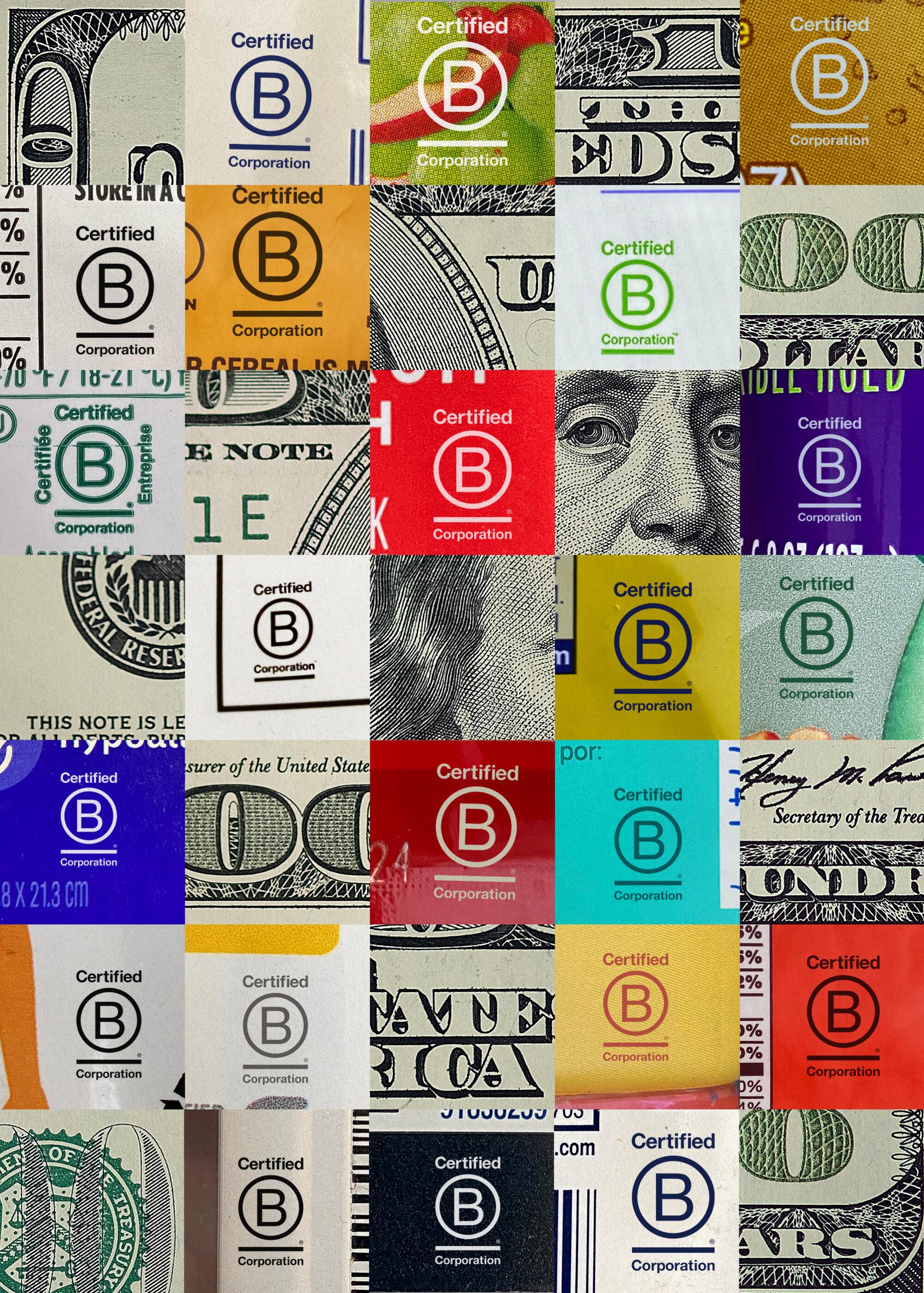
B Lab posts scoring assessments only for multinational companies, keeping the vast majority of B Corp filings private. Scoring details are not available for Amy’s Kitchen, which took in an estimated $600 million in annual sales in 2020, or for Dr. Bronner’s, which reported revenues of $170 million in 2021.
Companies interviewed by The Times described the certification process as a “back-and-forth” with B Lab in which businesses fill out surveys answering questions about various facets of their operations. Their responses are then reviewed by B Lab in a process that takes months or years to complete. Points can be earned based on wide-ranging criteria, such as what percentage of employees receives health insurance benefits, the diversity of the workforce or whether the company uses recyclable packaging.
In an interview with The Times, B Lab said that it uses background checks, corporate documentation, visits to a company site and other methods to verify its survey assertions.
The scoring system only accounts for the “positive impact of a company,” B Lab told The Times. “Negative impact” is assessed through a separate process that can prevent a company from moving further in the certification process or result in the postings of disclosure statements such as the one from Amy’s Kitchen.
B Lab does not publish a list of companies that have lost their B Corp status, either through non-renewal or revocation, on its website. But the nonprofit does list “controversial issues” that affect certified companies — categories such as “for-profit higher education,” “debt collection agencies in emerging markets” and “serving governments tied to human rights violations.” That list notes special conditions or circumstances in which B Lab will certify companies in such industries, but does not name the B Corps that fall into these sectors.
Just months after Scottish brewery and pub chain BrewDog became a B Corp in 2021, more than 60 former workers came forward in an open letter complaining of a toxic work environment and the accusations became the subject of a 2022 BBC documentary. By the end of that year, the company was no longer a B Corp; it is unclear whether the certification was revoked or the company dropped the affiliation on its own.
BrewDog’s leader at the time said the company was no longer “moving forward” as a B Corp amid a pending investigation by B Lab.
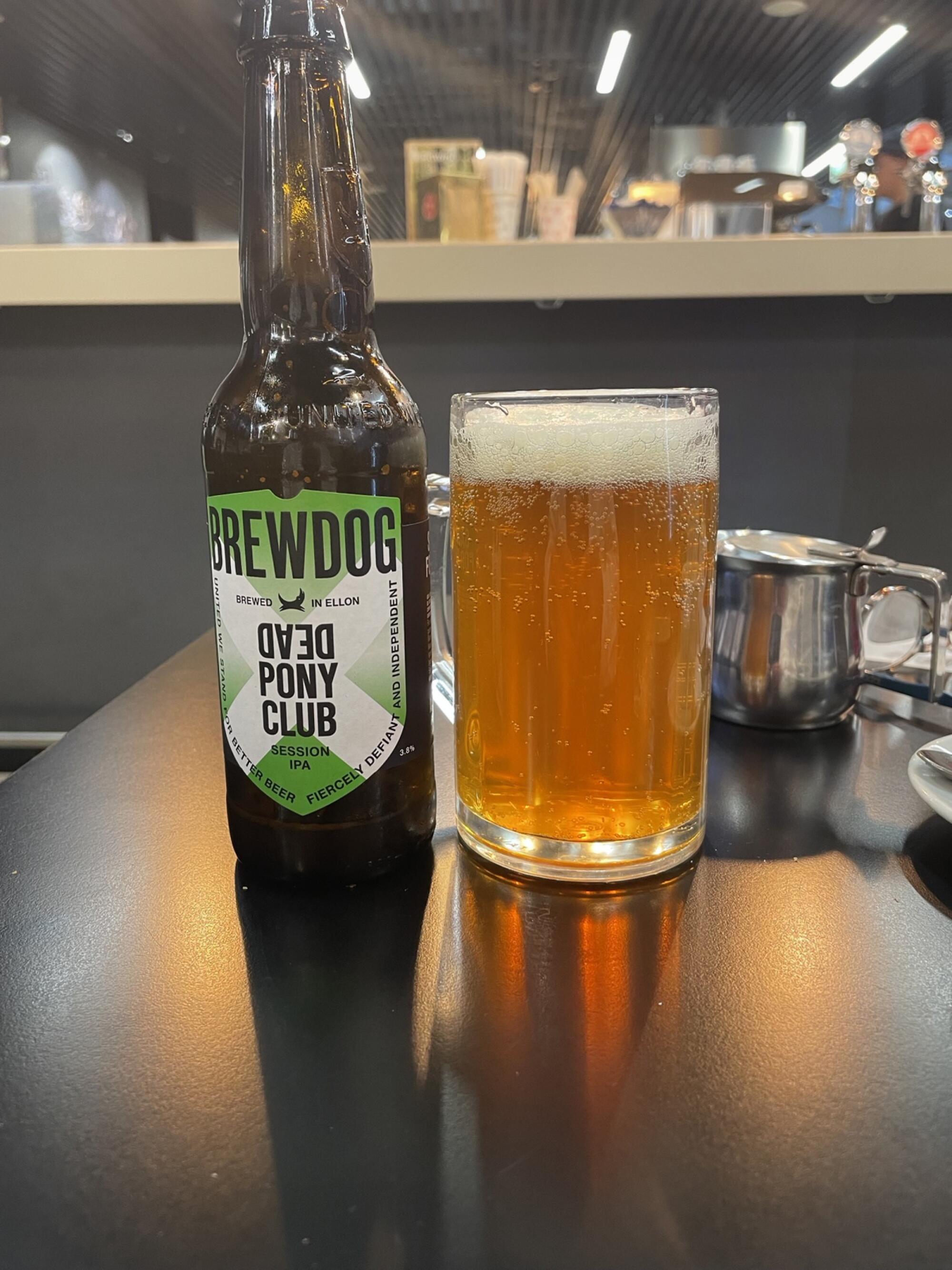
B Lab said it was “legally constrained” from discussing specific companies due to nondisclosure agreements it has with B Corps. Formal complaints can result in investigations by B Lab, but exactly how and when those investigations are carried out is uncertain.
In the same month that the BBC released its documentary on BrewDog, another certified B Corp drew scrutiny for its labor practices. Time Magazine called artificial intelligence company Sama “Facebook’s African Sweatshop” in a February 2022 investigation, claiming its Kenyan employees made as little as $1.50 an hour for work that included viewing violent, graphic and disturbing video. The company employed content moderators for Meta’s Facebook, Instagram and WhatsApp.
Sama and Meta are facing pending lawsuits in Kenya from former content moderators. One lawsuit accuses the companies of exploitation and union busting while a second case, filed by more than 100 former workers, is seeking $1.6 billion in damages for poor working conditions and low pay. B Lab told The Times it was unable to discuss Sama and is “awaiting the outcome of a currently active lawsuit relating to these allegations before determining whether we can pursue a formal investigation.”
Sama was named among the Best B Corps for Workers in 2021 by B Lab, which described the company as having “exemplary employee-friendly practices, such as ownership opportunities, job flexibility, and fair-chance hiring policies.” Sama has pointed to this 2021 recognition and its B Corp status when refuting the labor allegations.
B Lab has since implemented a moratorium on certifying companies that perform content moderation.
In an email, Sama denied underpaying workers or suppressing labor organization efforts, noting it “went above and beyond” to ensure content moderators were properly compensated and had access to mental health services. As of April, the company no longer provides content moderation services.
“We are a long-standing and trusted employer in East Africa, helping to lift more than 65,000 individuals out of poverty,” Sama told The Times. “At its height, content moderation represented less than 5% of our business.”
Meta did not respond to a request for comment.
‘Building an empire’
Before 818 Tequila even went into production, it had begun the process to become a B Corp.
“It guided us to become a better company,” President Mike Novy said. The company has pledged to donate 1% of annual sales to environmental causes and partnered with a Mexican nonprofit to transform production waste into building materials like adobe bricks.
Certification also appealed to 818’s target consumer, Novy said, who skews younger and is socially aware.

Novy said 818’s decision to seek B Corp status was rooted in the certification’s reputation as being rigorous and comprehensive.
“It’s not a lightweight process,” he said, adding that, “there’s much more effective ways to market to consumers than getting B Corp certification.”
Other B Corps, however, say they have growing reservations about the process.
Sister coffee roasters Cafe Campesino and Sweetwater Organic Coffee, which source their beans from small-scale farmers, have been certified as B Corps since 2017. Both companies signed onto the 2022 Nespresso protest.
Matt Earley, director of sales, marketing and community for the brands, likened Nespresso’s B Corp certification to the rise of fair trade organic coffee certification in the early 2000s, saying those standards fell when large companies entered the equation.
By contrast, he said, the B Corp certification process is difficult for companies and he hopes it remains that way.
“This isn’t a club, it’s not a brand,” he said. “This is hopefully a way we can incentivize businesses to be good actors and stewards.”
But Beth Spong, chief executive officer of Dean’s Beans Organic Coffee, a worker-owned cooperative that has been a B Corp since 2018, said B Lab had a “lost opportunity” when it didn’t reach out to her company and other signatories of the protest letter.
“It didn’t open a robust dialogue between B Lab and other members that I know of,” Spong said. She still stands by B Corp certification as a way to drive systemic change across industries, she said, but worries larger companies will drown out the voices of smaller members.
“The question is, how can B Lab keep the certification meaningful as opposed to a marketing tool?” Spong said.
Interest in becoming a B Corp has surged. In a July 2022 blog post, B Lab celebrated the certification of its 5,000th company and said it had 6,000 pending applications.
“The B Corp movement has never been about building an empire of B Corps,” the post read. “Certification is a means, not an end.”
To keep up with demand, B Lab has begun outsourcing its verification process. The organization expanded its certification department from 43 employees at the start of 2022 to 66 current staff, but also hired 20 contractors from Genashtim, an online training company and certified B Corp.
Certification fees paid by companies accounted for 42% of B Lab’s total revenue in 2021. Yearly fees start at $2,000 for small companies and run upward of $50,000 for businesses with annual revenues of $750 million or more.
Businesses with over $1 billion in annual sales pay undisclosed certification fees and for additional reviews that can cost several hundreds of thousands of dollars. B Lab declined to tell The Times how much the largest companies pay in a single year for certification, but said multinationals such as Nespresso account for only 3% of current total funding.
B Lab’s second-largest source of funding comes from donations. In March, B Lab received $1 million from Menlo Park venture capitalist Reid Hoffman, a co-founder of LinkedIn. Other top donors include the Ford Foundation, Deloitte, Prudential, JP Morgan Chase and Emmanuel Faber, the former chief executive of Danone.
Under Faber, Danone — the conglomerate behind brands like Activia yogurt and Evian — led the charge on making B Corp certification possible for larger companies, working with B Lab in 2015 to create a special certification process for multinational corporations. Danone became the first multinational to certify a subsidiary under the new process and has since certified more than 150 subsidiaries.
Danone declined to say how much it has paid in total for certifications.
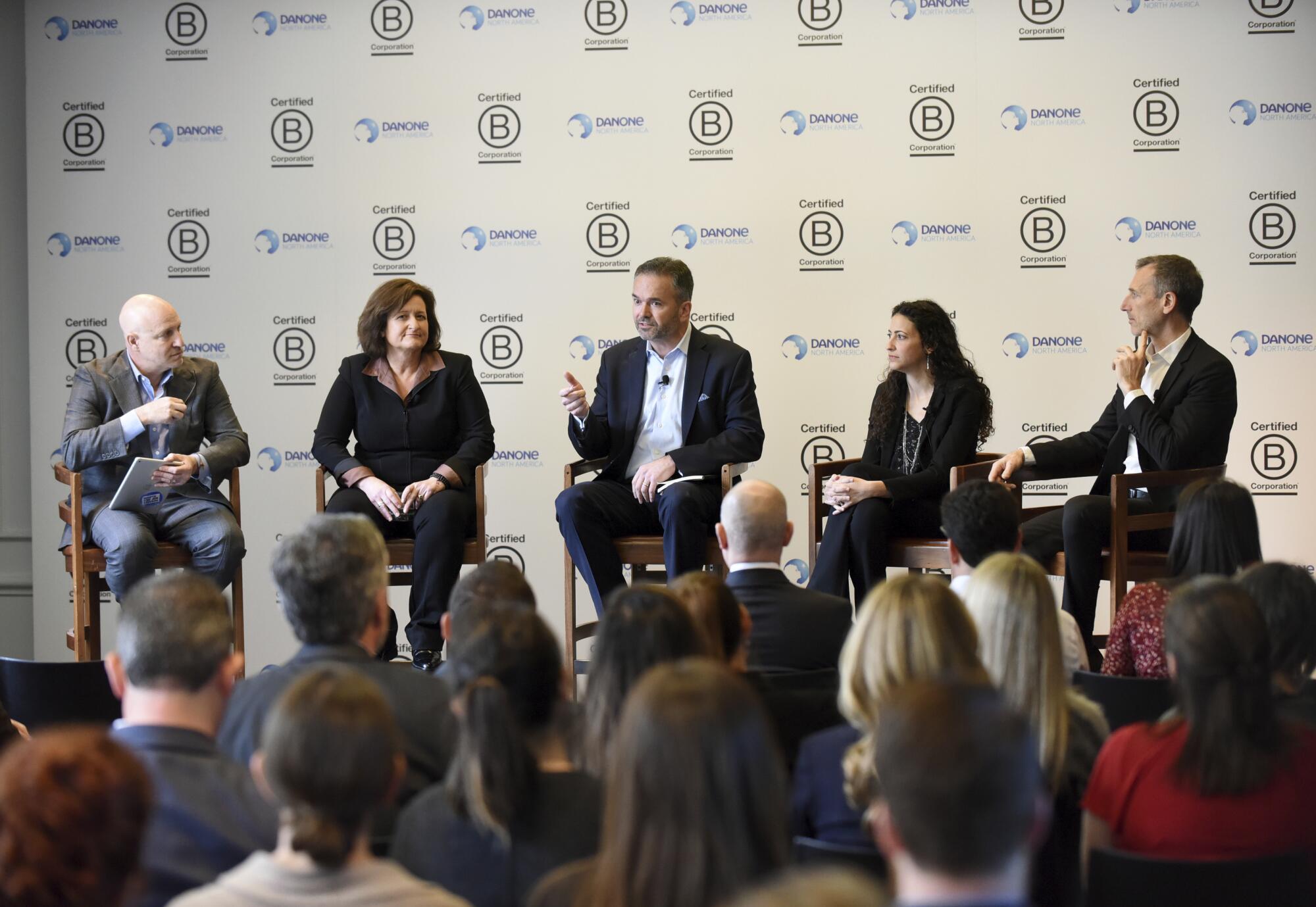
“As a large company within the B Corp movement, we hope we can show that high standards can be met, regardless of whether a company has 10, 10,000 or 100,000 employees,” a representative for Danone wrote in a statement to The Times.
In 2018, Danone executives leveraged the company’s growing portfolio of B Corps to negotiate a line of credit then worth €2 billion with a dozen banks including Citibank. Danone received a discount on the loan based on how much of its profits came from B Corp-branded products. The company now claims more than 75% of its global sales fall under the B Corp umbrella.
But while Danone is on track to becoming the world’s largest B Corp, it is likely to fall short of another goal it set for 2025. Danone was among more than 500 companies that made a United Nations pledge to drastically curb their plastic use. The participants, which include Nestle, PepsiCo Inc. and Unilever, are responsible for an estimated fifth of the world’s plastic packaging produced globally, according to the U.N. Danone has consistently ranked among the top 10 companies worldwide for plastic use.
Danone’s own reports showed little progress on its goal to use at least 50% recycled content in product packaging by 2025. In 2020, the most recent year for which the company provided data, Danone reported 10.3% of its packaging was made from recycled plastic, down from 10.6% the year before. Danone did not respond to questions about falling short on its plastic pledge or various lawsuits, but in a statement wrote that “B Corp is not about being perfect: no company is, regardless of size.”
Danone’s promises to reduce plastic output are now at the center of a lawsuit by French environmental groups. In the U.S., a class-action lawsuit accuses Danone’s Evian of false advertising after claiming its plastic water bottles are “carbon neutral.” French environmentalists have also accused the company’s Volvic mineral water brand of depleting natural volcanic streams amid a historic drought.
Magali Delmas, a professor at UCLA’s Institute of the Environment and Sustainability, said programs like B Corp certification can serve as a starting point for companies to improve their environmental practices, but are no substitute for laws mandating specific changes like reducing greenhouse emissions.
“From what I’ve seen so far, it’s not super stringent,” Delmas said of B Corp certification. “You can get to the 80 points relatively easily.”
The scores also don’t connect to specific sustainability targets or goals, she said, arguing that “they don’t tell you how this relates to solving the problem.”
Ira Rheingold, executive director of the National Assn. of Consumer Advocates, said people should be informed before relying on the B Corp designation as a “shorthand” for sustainable and ethical companies. He encourages consumers to do their own research by focusing on specific qualities that matter most to them, such as products that are not produced using slave labor or companies that pay above minimum wage.
“Understand that it’s really more of a marketing ploy,” Rheingold said of B Corp certification. “If you really want to be a consumer that only consumes and buys products that fit your ethical beliefs, it’s a really hard thing to do.”
More to Read
Sign up for This Evening's Big Stories
Catch up on the day with the 7 biggest L.A. Times stories in your inbox every weekday evening.
You may occasionally receive promotional content from the Los Angeles Times.

